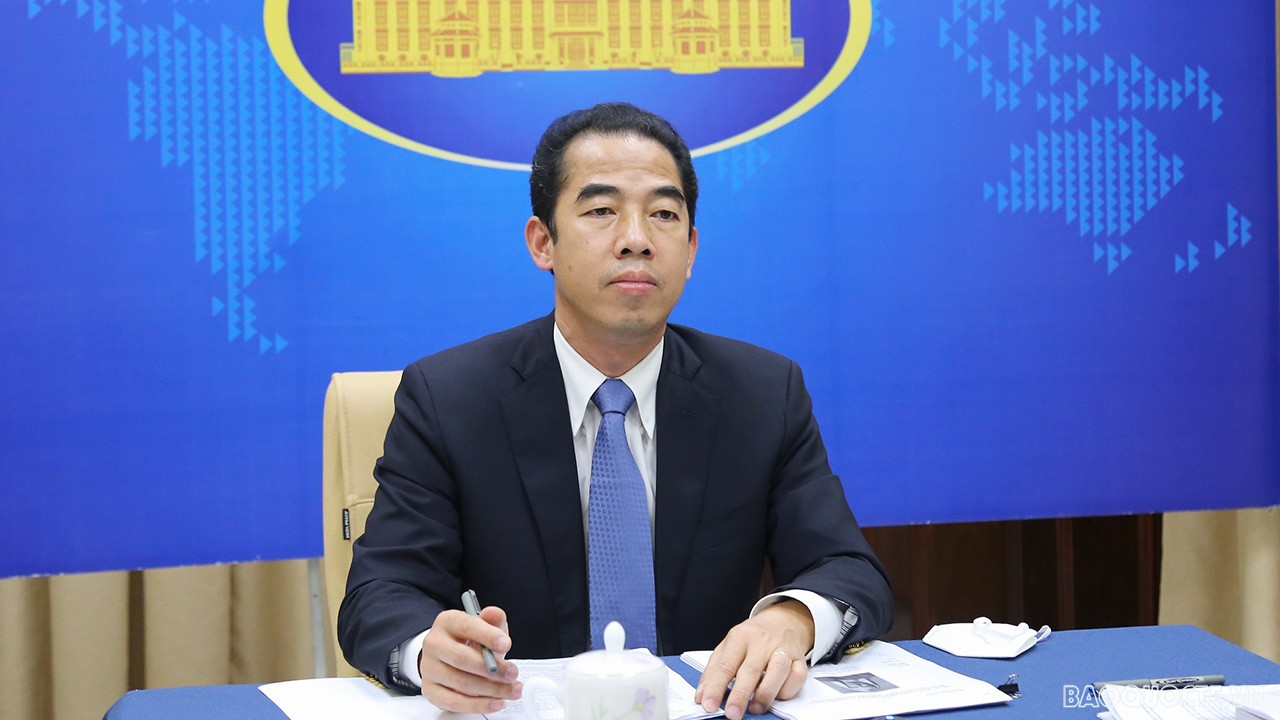
Viet Nam, UK work to raise effectiveness of key cooperative mechanisms
Latest
 |
| Deputy Minister of Foreign Affairs To Anh Dung at the phone talk. (Photo: Tuan Anh) |
They expressed their delight at the comprehensive development of the Viet Nam-UK strategic partnership. In 2021, despite impacts of the COVID-19 pandemic, both sides have maintained high-level exchanges, with a highlight being Prime Minister Pham Minh Chinh’s working trip to attend the 26th United Nations Climate Change Conference of the Parties (COP26) and visit the UK from October 31-November 3.
They discussed measures to realise contents agreed by the two countries’ senior leaders to deepen the bilateral strategic partnership.
In the context that the two nations will celebrate the 50th anniversary of bilateral diplomatic ties in 2023, the officials stressed the importance of arranging high-level delegation exchanges and intensifying the efficiency of key cooperative mechanisms, including the early organization of the Strategic Dialogue at deputy foreign ministerial level.
Milling appreciated Viet Nam’s strong commitments at COP26, adding that the UK is willing to support Viet Nam in reducing emissions and shifting to clean energies.
Dung, in turn, affirmed that the Vietnamese Government is determined to implement declared commitments and speed up the implementation of measures to reduce greenhouse gas emissions by national resources and assistance of the international community.
The two officials reached a consensus on fostering cooperation in trade and investment on the basis of the UK-Viet Nam Free Trade Agreement, including attracting investments in such fields as digital economy, green transformation, renewable energy, green finance, and infrastructure development.
On this occasion, Milling shared that the UK Government will present an additional 320,000 AstraZeneca vaccine doses to Viet Nam. Dung thanked the UK Government for this decision and proposed the UK continue helping Viet Nam gain access to vaccines and treatment drugs.
Both sides agreed to maintain close coordination at multilateral forums, particularly at the United Nations. They also exchanged views on several regional and international issues of mutual concern, stressing the importance of respecting and maintaining peace, stability and security, and ensuring navigation and aviation freedom in the East Sea in accordance with international law, and considering the 1982 United Nations Convention on the Law of the Sea (UNCLOS) as a legal framework for all activities at seas and oceans.












